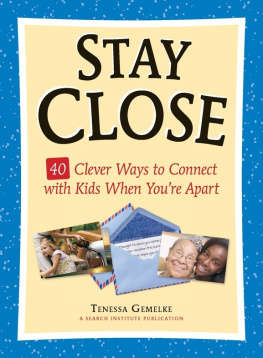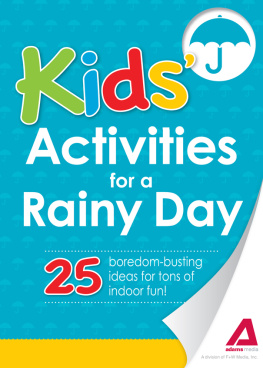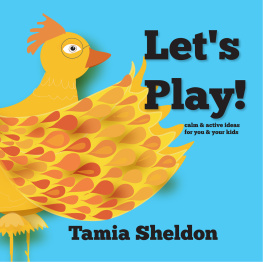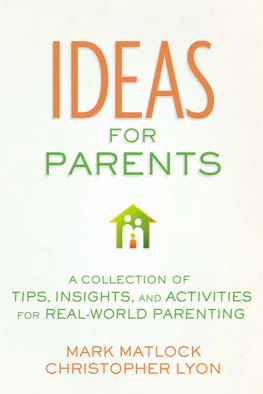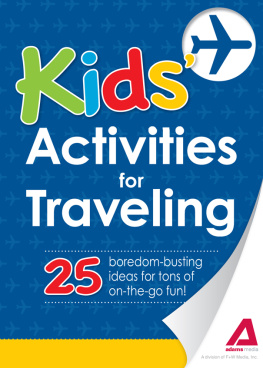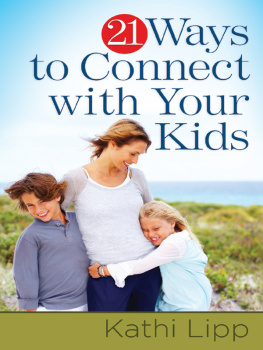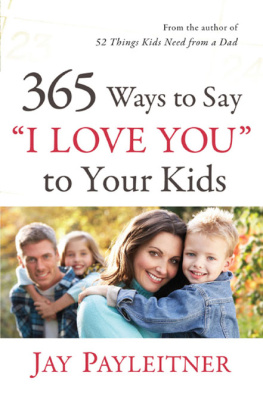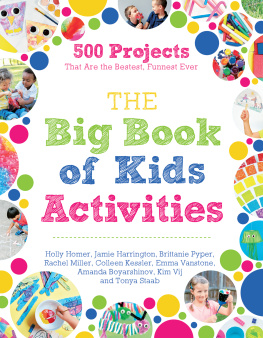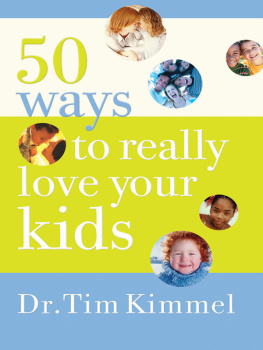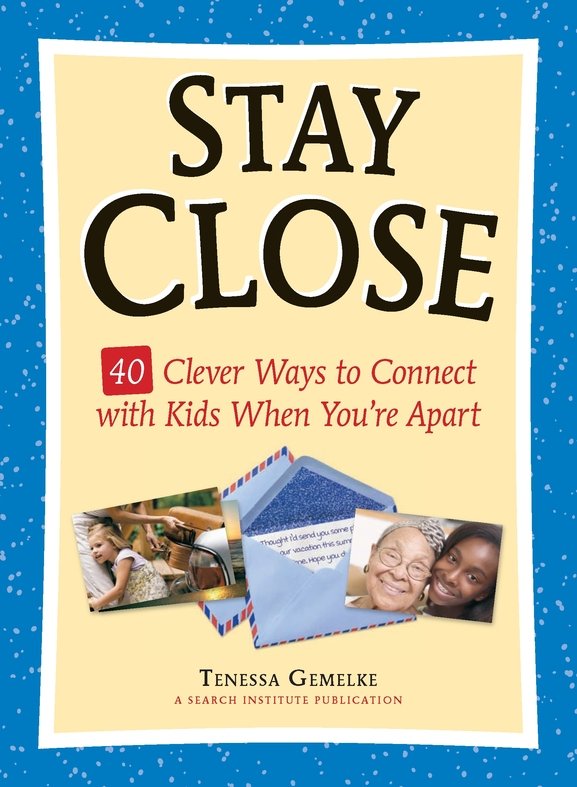Acknowledgments
I suppose the downfall of being an editor is that I know how many individuals contribute to the publication of a single book. Because I run the risk of thanking far too many people, Ill start by saying that my family, my friends, and my colleagues at Search Institute gave me tremendous support as I researched and wrote this book. I am grateful to you all.
Having said that, I do wish to express special gratitude to several people.
I thank my two editors: Ruth Taswell gave me early encouragement and support getting the project off the ground, and Anitra Budd offered wisdom, talent, and tireless optimism in the face of a wild schedule. I thank Kay Hong and Kathleen Kimball-Baker for believing in me and giving me the chance to write this book.
Id like to thank the people who converted the manuscript into a real, live book: Mary Ellen Buscher is an outstanding production coordinator, and she showed genuine enthusiasm for this topic. Brad Boettcher and Mark Reis at Percolator are fantastic designers and were incredibly helpful when we made last-minute changes to the cover.
Youll see several names mentioned in anecdotes throughout the book. These people were all kind enough to share their stories about long-distance families and friendships. I am also grateful to Mary Ackerman, Karen Bartig, Jim Conway, Phillip Donlay, Stephanie Drakulich, Betsy Gabler, Jennifer Ganyo, Kristin Green, Sandra Harris, PatHowell-Blackmore, Bill Kauffman, Dave Lee, Cora Mc-Michael, Gladys Roth, Susanne Smith, Terri Swanson, and Nancy Tellet-Royce for reading the first draft and giving their valuable suggestions for improving it.
I thank my family for teaching me the value of staying in touch across distances. I know how challenging it is as an auntie to five far-away nieces and nephews, and I have to confess the irony that I managed to be exceptionally late sending two of them birthday presents while writing this book! Staying close is hard work, but theyve taught me that its definitely worthwhile.
Finally, I offer deepest thanks to my husband, my dad, and my baby; these guys fed me, loved me, and gave me time to write in peace at home. I couldnt have done it without them.
ABOUT THE AUTHOR
Tenessa Gemelke has worked and volunteered for many years in recreation centers, youth clubs, library programs, and mentoring programs. She was also a contributing writer for Building Assets Is Elementary: Group Activities for Helping Kids Ages 8-12 Succeed. Gemelke is currently an associate editor at Search Institute and has edited several resources on positive youth development, including Who, Me? Surprisingly Doable Ways You Can Make a Difference for Kids and The Journey of Community Change. She lives in Minneapolis, Minnesota with her husband and son.
FREQUENTLY ASKED QUESTIONS
-or-
What to remember when a long-distance relationship with a young person seems too hard
What if my efforts arent appreciated?
As this book took shape, many adults expressed concern to me that their efforts would mean nothing, that their gestures would go unnoticed. But take a moment to think of three adults who mattered to you when you were young. (Try to think of at least one adult who lived far away.) How did you show your gratitude? Did you write lengthy letters to Grandpa, telling him he made you feel valued and respected? Did you tell your mothers college friend her annual gifts of art supplies provided hours of creative fun? Did you tell your divorced father you spent all week looking forward to his Sunday phone calls?
You may have shared these feelings as an adult, but chances are you were less forthcoming as a child or a teenager. Kids can be shy around adults, especially those they rarely see in person. A boy may grunt yes-and-no answers over the phone as you discuss world travel, only to turnaround and brag to his friends about his aunts trip to Africa. A teenage girl may sound bored or timid as she says a forced thank-you for the book you sent, but that book may be the one that inspires her to write her first novel.
The point is, if you are hoping for an outpouring of gratitude and long, heartfelt conversations, you may be disappointed. Some kids will lavish praise and love on their favorite adults, and some simply wont. That doesnt mean your efforts are worthless. Keep in mind that a decade may pass before your niece realizes how much you contributed to her love of music, and your grandson may not appreciate that book of family recipes until he has a family of his own. Even if the results arent immediately apparent, your love and attention are still the most valuable gifts you can offer. Give them freely.
I am too nervous to talk to teenagers. What if they reject me?
Fear of rejection is a common obstacle adults face in connecting with young peopleespecially teenagers. In her book Tag, Youre It! (Search Institute, 2004) Kathleen Kimball-Baker describes her experience of interviewing several teenagers to learn more about the adult relationships in their lives. She was inspired to discover that they truly do want more adults to care about them and build relationships with them.
Think about the way you interacted with adults who touched your life when you were a teenager. Did you ever shrug at their questions, blush furiously at their compliments, or ignore their suggestions? These are just a few of the behaviors you may encounter. Despite their outward actions, research reveals teens want adults to trust them, to spend time with them, and to be their friends.
In his book WHY Do They Act That Way? (Free Press, 2004) , clinical psychologist David Walsh shows how teen brain development affects their behaviors. You may be worried about having to deal with mood swings, communication problems, or risky activities. Dr. Walshs research shows that these are actually normal, physical responses to brain growth.
Once you know that teens really need you in their lives and cannot help some of their impulsive reactions, it is much easier to tolerate their silences or eye rolling. You dont have to be cool to make a difference. You just have to be dedicated.
What if the parents resent my attempts to be involved?
While most parents will welcome support from other caring adults, it is possible your efforts will not initially be welcome. Maybe you havent spoken to your ex-spouse since your divorce, or perhaps you have a hard time getting alongwith your son- or daughter-in-law. In these delicate situations, it is important to set your differences aside and find common ground.
Even if you have your own feelings of anger or resentment, try to take a positive approach. Say something like, I know it is difficult to take care of a family, and I really think your daughter/son is great. I would love to spend some time getting to know her/him. If you have a specific gesture in mind, ask about it in advance: I was thinking I might send a CD that I recorded. Is that okay? Consulting with parents or caregivers up front shows you respect their authority, which may reduce the likelihood of future problems.
YMCA of the USA and Search Institute conducted a 2002 poll of 1,005 adults. This poll found that most parents feel they are going it alone. Parents may not feel comfortable asking for your involvement, but they can certainly benefit from it (Roelhkepartain et al. 2002).
Please note that states and provinces have varied laws about child visitation rights for parents, grandparents, foster parents, and stepparents. If you have trouble reaching an agreement with a young persons caregiver but feel strongly that you should be a part of that childs life, seek advice from a lawyer, a family mediator, or a nonprofit organization that works with families.

